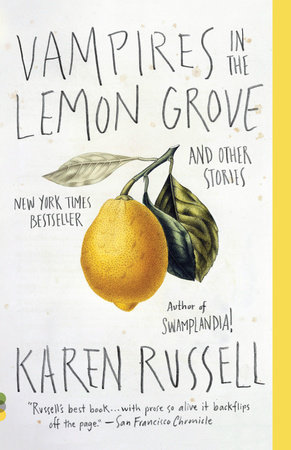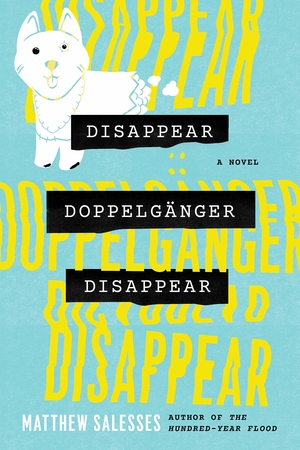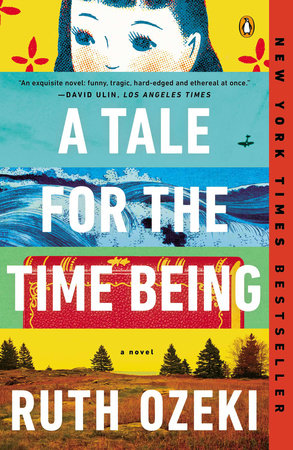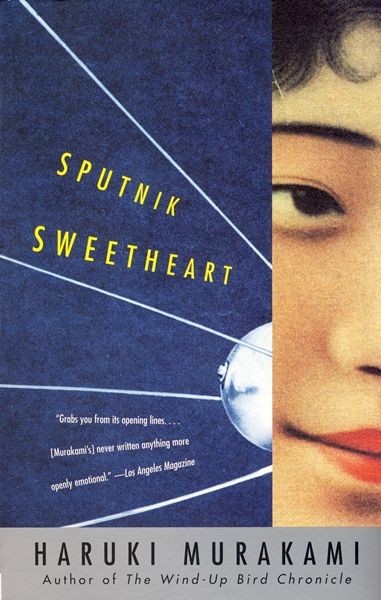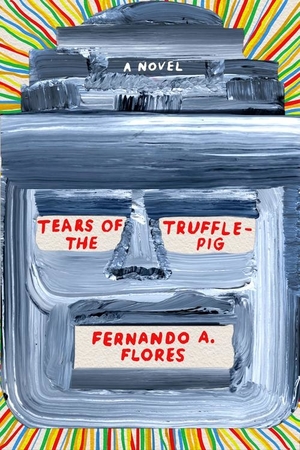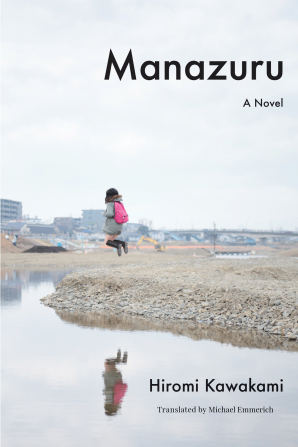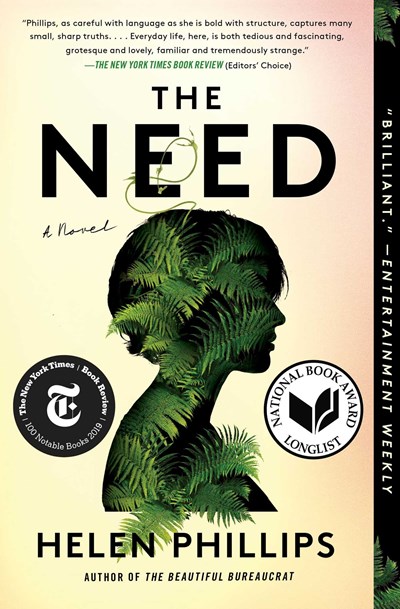An excerpt from The Death of Vivek Oji
by Akwaeke Emezi
Osita
Vivek chipped my tooth when I was eleven years old. Now, when I look in a mirror and open my mouth, I think of him and I feel the sadness crawling through me again. But when he was alive, when it first happened, seeing it just used to pump anger through me. I felt the same after he died, that hot anger, like pepper going down the wrong way.
When we were small, he and I were always getting into fights. It was mostly nothing, scuffles here and there. But one day, we were pushing each other in his backyard, our feet sliding in the sand under the plumeria tree, both of us angry over something. Vivek pushed me and I fell down against a concrete soakaway outside, splitting my lip, and that was when my tooth chipped. I cried, then was ashamed of crying, and refused to speak to him for a few days. He was about to leave for boarding school up North—some military academy that De Chika had insisted on, even though Aunty Kavita begged him for months not to send Vivek. But my uncle wanted him to toughen up, to stop being so soft and sensitive. I wanted him to stay, but I was too angry to tell him. He left and I stayed behind, nursing an injured pride that prompted me to fight anyone who brought up the missing corner of my tooth. I fought a lot in school that term.
By the end of the year, I missed him terribly and I started to look forward to when he would return home to Ngwa during the rainy season on holiday. It was during one of those long breaks that Vivek’s mother convinced mine to enroll us both in SAT prep classes.
“It’ll get the children ready for American universities,” Aunty Kavita said. “Then they can get scholarships and an F1 visa. Think of it as straightforward.”
She and De Chika expected Vivek to go overseas for university, with a certainty they passed down to him—a knowledge that his time here at home was temporary and that a door was waiting as soon as he was done with his WAEC exams. Later I realized that it was the spilling gold of the dowry that funded this belief, but back then I thought they were just being optimistic, and it surprised me, because even my own mother who believed in thick prayers had never mentioned me going overseas. The gold was a secret door, a savings account that could buy America for Vivek.
I didn’t want to take the test prep classes, but Aunty Kavita begged me. “Vivek won’t do it unless you do,” she said. “He really looks up to you. You’re like a senior brother to him. I need him to take the classes seriously.” She patted my cheek and nodded as if I’d already agreed, giving me a smile before she walked away. I couldn’t say no to her and she knew it. So every Friday and Saturday during the holidays, Vivek and I took a bus down Chief Michael Road to the test center. I got used to spending the weekends at Vivek’s house, to the Saturday breakfasts when De Chika would detach the cartoon section of his newspaper for Vivek and me, when Aunty Kavita made yam and eggs as if she’d been doing it her whole life.
She had learned to cook Nigerian food from her friends—a group of women, foreign like her, who were married to Nigerian men and were aunties to each other’s children. They belonged to an organization called the Nigerwives, which helped them assimilate into these new lives so far away from the countries they’d come from. They weren’t wealthy expats, at least not the ones we knew. They didn’t come to work for the oil companies; they simply came for their husbands, for their families. Some knew Nigeria because they’d lived here for decades, through the war even; others spoke Igbo fluently; between them, they taught Kavita how to cook oha soup and jollof rice and ugba. They held parties for Easter and birthdays, and when we were little, I used to follow Vivek to attend them. We would line up for the photograph behind the birthday cake; we dressed up as ninjas for the costume party and spent weekends in the pool with the other Nigerwives’ kids at the local sports club.
One year, when we were all around thirteen or fourteen, there was a potluck at Aunty Rhatha’s house. She was from Thailand and had two daughters, Somto and Olunne, roundfaced girls who laughed like identical wind chimes and swam like quick fish. Her husband worked abroad, but Aunty Rhatha seemed to get along just fine without him. She made pink and yellow cupcakes, fluffed with air and sugar, decorated with carefully piped designs and sugar decorations, birds and butterflies in startling colors. Though he had a bit of a sweet tooth, Vivek hated the cupcakes, but he took his share anyway so he could give it to me. We walked around the house as wings melted in my mouth, our bare feet against the cool marble tile. Aunty Eloise was pacing in the back parlor, on the phone with someone, probably one of her sons, who had already left for university in the UK. Eloise was short and plump, with thick sandy hair and a perpetual smile. She and her husband, a doctor from Abiriba, both worked at the teaching hospital, and Aunty Eloise liked to host dinners and parties at her place, just to get some sound back into the walls now that her children were gone.
“Why doesn’t she just go and join her kids?” Vivek wondered aloud.
I shrugged, peeling a cupcake wrapper off. “Maybe she likes living here? Or maybe she just likes her husband.”
“Please. The man is so dry.” Vivek looked around, at the other Nigerwives clustered in the dining room, arranging pans of curry and chicken and rice along the table. “Besides, most of them are only here because of their children. If not, they would have left from since.” He snapped his fingers for emphasis.
“Your own mother, nko?”
“Mba now, her own is different. She was already living here before she got married.” We heard the front door open and Aunty Rhatha’s high voice, shimmering as she greeted the new arrival. Vivek cocked his head, trying to hear the guest’s voice, then smiled wickedly at me. “I think that’s Aunty Ruby,” he said, wagging his eyebrows. “You know what that means—your girlfriend is here.” I was grateful he couldn’t see me blush through my skin, but his eyes were laughing at me anyway. Aunty Ruby was a tall woman from Texas who owned a daycare center; her husband owned a carpet shop, and her daughter, Elizabeth, was one of the most beautiful girls I had ever seen in my short life. She was a runner, lean and longboned, with a swaying neck. I once tried to beat her at a footrace but it was useless, she moved like the ground was falling away beneath her feet, the future rushing toward her. So I stood back and watched her race all the other boys in the area who thought they could take her on. Elizabeth always won, her chest high and forward, sand flying behind her. Most of the boys were afraid to even talk to her; they didn’t know what to do with a girl who was faster than them, but I always tried to chat with her a little. I think it surprised her, but she didn’t seem to like me the way I liked her. She was always nice to me, though, if a little quiet.
“Leave me alone, jo,” I said to Vivek. “Is it because Juju is not here?”
Vivek colored immediately, and I laughed in his face as Somto and Olunne came around the corner with a bowl full of sweets.
“Do you want?” Somto asked, her voice bored as she held out the bowl. She hated when her mother hosted things, because they always had to help set up and serve and clean afterward. Vivek shook his head, but I rifled through the bowl, picking out the Cadbury chocolate eclairs that were my favorite.
Olunne stood next to her sister, twirling the white stick of a lollipop around in her mouth. “What were you talking about?” she asked.
“His wife,” I said, grinning. “Juju.”
Somto kissed her teeth. “Tchw. Please. I don’t have energy to waste on that one.”
“Ah‑ahn,” Vivek replied, “what’s your own?”
“She never comes to these things,” Somto complained. “The rest of us have to attend, but that one just lets her mother come alone. Who does she think she is, abeg.” Somto was right: Jukwase, who we all called Juju, didn’t like to come to the Nigerwives’ events. Her mother was Aunty Maja, a nurse from the Philippines who was married to a much older businessman. I’d watched Vivek pine after Juju for years, but the girl was too somehow, a little strange.
“Maybe she thinks she’s too janded to be here,” Olunne said, shrugging. Juju had been born overseas, even attended school there for a few years before her parents moved back to Nigeria. She’d been very young at the time, but her voice still kept an accent that was different from ours. It was too easy to gossip about her, especially when she avoided the rest of us.
“Don’t mind her, she’s there forming fine girl because of her hair,” Somto said, her lip curling. I bit my tongue; this hair thing was a sore point for Somto, who’d had to cut hers the year before when she started secondary school. Juju’s mother had enrolled her in a private school that didn’t require mixed girls to cut their hair, so Juju got to keep hers long, curling down her back. Vivek frowned, but he knew not to push Somto or defend Juju too hard. It wasn’t until we were on the way home that he lowered his voice to complain to me.
“The girls don’t give Juju a chance because they’re so jealous. It’s not fair.”
I nodded, knowing how it had cut at him to hear them talking about her. “It’s not,” I agreed, mostly for his sake. He just liked that girl too much. She lived down the road from De Chika’s bungalow, at the end of a quiet street near Anyangwe Hospital. We used to ride our bicycles up the street all the time, slowing down when we passed Juju’s house. Aunty Maja loved flowers, so their fence was covered with piles of pink and white bougainvillea.
“Go and knock on the door,” I told Vivek. “See if she’s home.” “And say what?” he replied, pedaling in slow loops in the middle of the road.
I shrugged, confounded by the intricacies of wooing a girl in her father’s house. We pedaled home, leaving our bikes next to the swing set in the backyard. There was a cluster of bitterleaf bushes in front of the boys’ quarters, fighting with an ixora hedge for space. Aunty Kavita and De Chika used to have a househelp who lived there, but she returned to the village after a year or two—a death in the family, I think—and they never replaced her. Vivek and I took over the housework; we would sweep her old room in the boys’ quarters as if someone still lived there, dragging the broom under the metal frame of the bed. We stayed there when we wanted to be away from the grown‑ups, our bodies sprawled over dusty‑pink bedsheets, eating boiled groundnuts and throwing the shells at each other. Aunty Kavita left us alone there, only shouting from the back door of the main house if she needed anything. De Chika never even set foot inside. All of this made it a little easier for me to hide Vivek’s thing from them when it started.
I don’t know how long it had been happening before I noticed. Maybe someone else noticed first and just didn’t say anything, or maybe no one did. The first time I saw it with my own two eyes was the year after he chipped my tooth, on a Sunday after I had gone to Mass with them. It was afternoon, and Vivek and I hadn’t even changed out of our church clothes. We’d eaten lunch, cleared the table, then escaped to the boys’ quarters with a small stack of Archie comics that Aunty Eloise had brought back from her nephews on her last trip to London. I had one splayed out on the cement floor, my head and one arm dangling off the edge of the bed, my feet propped against the flaking wall. Vivek was sitting cross‑legged on the mattress beside me, his comic in his lap, spine curving forward as he bent his head over the pages. The day was hot and quiet, the only sound the rustling of thin paper and an occasional cluck from the chickens outside.
Vivek’s voice broke into the silence, low and rusty. “The wall is falling down.”
I lifted my head. “What?”
“The wall is falling down,” he repeated. “I knew we should have fixed the roof after it rained last time. And we just brought the yams inside.”
I closed my comic and sat up. His head was still bent but his hand was unmoving, resting on a half‑turned page. His fingernails were oval, cut short down to the beds. “What are you talking about?” I asked. “Are you all right?”
He raised his head and looked right through me. “You don’t hear the rain?” he said. “It’s so loud.”
There was nothing but sun pouring through the glass louvers and old cotton curtains. I stared at Vivek and reached my hand out to his shoulder. “There’s no rain,” I started to say, but when I touched the cotton of his shirt and the bone of his joint underneath, his eyes rolled up into white and his body flopped sideways, falling against the mattress. When his cheek hit the foam, he jerked as if he was waking and scrabbled his arms and legs, pushing himself back up and gasping loudly. “What? What happened?”
“Shh! You’re shouting,” I said. I didn’t touch him because I was afraid of setting him off again.
His eyes were wide and jittery. He looked around the room, his gaze brushing past me as his breath settled. “Oh,” he said, and dropped his shoulders. Then, almost to himself, “This thing again.”
I frowned. “Again? Which thing?”
Vivek rubbed the back of his neck, looking uncomfortable. “It’s nothing. Just small‑small blackouts. Forget it.”
I kept looking at him but he wouldn’t look back at me. “You were talking about rain,” I said. “And yams.”
“Ehn?” he replied, cramming an is‑that‑so into one sound. “I don’t remember. Biko, fashi the whole thing.” He picked up his comic and lay on his side, turning away from me. I didn’t say anything, because that’s how he was: when he wanted to stop talking about something, he stopped talking about it, shutting down like metal protectors had fallen around him. But I watched him, after that—I watched him to see if it would happen again.
There were moments when he would become very, very still, just stop moving while the world continued around him. I saw it happen when we were leaving class one evening: Vivek stopped walking and our classmates jostled and pushed him as they filed past. I was a few people behind him but he still hadn’t moved by the time I caught up. The others were glaring at him, sucking their teeth as they shoved past. He was walking as if he was drunk, staggering and stumbling, his lips moving slowly and soundlessly. I grabbed his elbow and propelled him forward, pulling him against me so he wouldn’t fall. As the stream of people continued out of the compound—JAMB exams were coming up, and the test center was full of students—I got Vivek through the gate and pushed him out of the way, up against a fence by the roadside gutters. Finally, he shuddered and came back. “Are you all right?” I asked, letting go of his elbow.
He looked at me and the protectors fell over his face. “I’m fine. Let’s go.” I followed as he strode toward the bus stop, wary but silent.
Somehow it became like that whenever he was back from school, even when we went to the village house over the holidays, me watching him close and intervening when I could and Vivek never really telling me what was going on. If I stepped in like I had at the prep center, he just thanked me and we’d continue as if nothing had happened. I got used to it.
None of our parents noticed, maybe because he was always so controlled around them, never as relaxed as he’d been in the boys’ quarters. To them, it just looked like he had quiet spells. Aunty Kavita would assume he was tired and tell him to go and sleep. My mother told her to check if he was anemic, and Aunty Kavita fed him large portions of ugu for a while, just to be on the safe side. He and I still read our comics and ate boiled groundnuts in the boys’ quarters of his house when I was in town; we still rode our bikes down the street; we still knocked down guavas and mangoes with a hollow bamboo stick, then lay on the bonnet of De Chika’s car to eat them.
We were young, we were boys, the years rolled by in the heat. Later, much later, I wondered if I should have told his parents what was going on, if that would have helped him, or saved him a little.
Two years before I finished secondary school, I finally gathered enough courage to approach Elizabeth. She was taking the SAT classes with us and I toasted her the same way we all toasted the girls we liked—I bought her FanYogo after class and escorted her to the gate when her driver came to pick her up.
Vivek watched me and laughed. “You’re finally chyking this girl?” he said. “Thank God. At least you didn’t wait until graduation.”
After a week of sending her letters and carefully writing down the lyrics to the hottest love songs for her, Elizabeth finally agreed to be my girlfriend. She saved the letters, all written on sheets of foolscap paper torn out of my exercise books, and wrote me notes telling me how romantic I was. I visited her house in Ngwa a few times—I already knew I could never bring her to Owerri.
One weekend, she suggested traveling down with me when I was going home.
“I have an aunty who lives there,” she said. “And my parents know your aunty, so they’ll allow me to go with you. You know how the Nigerwives are.” She was starting to get excited about the idea. “We can take the bus together!”
I refused. I didn’t want to chance anyone seeing us together at the bus stop in Owerri and reporting me to my mother. She had already warned me about having girlfriends during a rant about the sins of the flesh, when she told me that if she ever caught me masturbating, she would throw me out of the house. I couldn’t believe she was the one talking to me about that instead of my father, but my mother didn’t care. By then, she was a hardened pillar of religious fervor and prayerful discipline. When De Chika told me stories about the cheerful young woman my father had married, the one he used to sit and gist with in the kitchen, I couldn’t recognize her as my mother. The mother I knew was a straight‑mouthed person who held nightly prayer sessions, always kept her hair wrapped in a scarf, and quoted her pastor in every second breath.
Meanwhile, my father was staying longer each day at the office and I was spending more weekends at Vivek’s house, even when we didn’t have SAT classes. My mother noticed this immediately, of course. How could she miss it when we were all she had? She complained to my father about his absence, and when he continued to stay late at work, she decided he had a mistress. It was a fear fed to her by the women in her church. Why else, they reasoned, would he stay away from his family? No, he had to be keeping some girl in a guesthouse somewhere. On the nights I was home, I sometimes heard the shouting from their room as she threw accusations at him in tight, balled‑up words.
“You think you can just go and take another woman, ehn?! And me, I will fold my hands and allow it? Tufiakwa! You will tell me who she is, Ekene—today today! You will not sleep until you tell the truth and shame the devil!”
“Mary, lower your voice,” my father said, his voice tired and level. “The boy is asleep.”
“Let him hear!” she said, her voice punctuated with claps. “I said, let him hear! Is this how you want to shame me in front of everybody? Oya now, let us start with our son!”
I covered my head with my pillow to block the sounds. “Your mother wants you to spend more time here,” my father told me the next morning over breakfast. “This is your home. Not your uncle’s house.”
I kept my mouth shut and ate my cornflakes, even though I wanted to tell him that he was just as guilty as me. He was never there. He was the one leaving me alone with my mother, who felt like a hammer instead of a person. So I stayed away from home when I could, making up an impressive roster of excuses: De Chika was sick and they needed me around the house. The road from Ngwa to Owerri was plagued with armed robberies and it wasn’t safe to travel. If my mother had simply told De Chika that she wanted me home more, he would’ve sent me along immediately, but she never brought it up and he didn’t notice how often I was around. I think my mother kept quiet because she didn’t want it to look as if she and my father couldn’t handle me.
Aunty Kavita had told me once that my mother had wanted more children, but that she’d stopped trying after several miscarriages. I couldn’t imagine what she’d gone through—how much of my mother’s life I missed because I was a child—but I wondered if that was what changed her. She must have prayed so much in those years. Maybe that’s where the bright, high‑spirited woman De Chika talked about went; maybe she’d been sanded down into dullness by grief and prayers that went unanswered.
Instead, she held on to her faith with a stubborn kind of bitterness, as if it were all she had left—a trapped and resentful love. Who could stay bright and bubbly after losing baby after baby? What do you do when you’re not allowed to be angry at God? I could see why she made everything so heavy, but I still ran from her, all the way to the boys’ quarters at De Chika’s house and to Elizabeth, who made me never want to go back to Owerri.
“I don’t like to be in my house either,” she told me. Her family didn’t have a lot of furniture, and although Elizabeth said it was just the style, I had heard my aunt and uncle talk softly about her father. He was a quiet man, gracious, always with a handkerchief in his suit pocket, but from what I’d overheard, he was also a drunkard. His carpet store was always in danger of closing—he spent their money as if it was water—and Aunty Ruby had to hide what she made at the daycare center from him. Elizabeth never talked about it and I never asked her. She let me come over when he wasn’t home, but she preferred to visit me at De Chika’s house, in the boys’ quarters.
“I like it here,” she said, twirling around the room. “It’s like our own little world.” My heart pounded as I gazed at her arms and legs, so long and brown, sticking out from her clothes, ending in narrow hands and sandaled feet. There had been one or two girls at school that I’d knacked before, but Elizabeth was the first girl I’d brought there, to that small room and the dusty‑pink bedsheets. She never stayed more than an hour or two; Vivek came looking for me there after his piano or French lessons, and she would always straighten her clothes and leave before he returned. I spent what time we had in disbelief that this person—the same one I used to watch as she cut through the air running—was here, choosing to be with me. I remembered in exquisite detail how, each time she won a race, her face would light up, her lips parted as she panted for breath, her eyes bright with victory. I wanted to re‑create that look. I wedged the door to the boys’ quarters shut and pushed up against her, and she giggled under my hands and mouth. “Don’t stop,” she sighed, as I kissed her neck. Her skirt was starched and green and pleated. I slid my hands up her thighs, but she pushed them away, so I just held her waist instead.
One afternoon we were making out on the bed, our hips grinding through layers of clothing, when Elizabeth pulled her head back and searched my eyes with hers. “Touch me,” she whispered, and I froze, wondering if I’d heard her correctly. She let her legs fall open and arched her hips up toward me. “Touch me,” she said again, and I obeyed, reaching under her skirt. We fucked right there on the mattress—the sweat of her body against mine, her legs around my waist—and it was like a better life. My hair was short then, but I kept it in little twists like I was trying to start dreadlocks. She slid her hand into my hair and tugged on it, and the pain in my scalp was electric and perfect. I had to strip the sheets afterward to hide where I’d pulled out and spilled all over them.
Two hours later, I lay on the bare yellow foam of the mattress and told Vivek about it, about the noises she made and how she felt inside. He was standing by the window in a green T‑shirt, leaning on the wall, eating chocolate Speedy biscuits from a purple packet he held tight in his hand.
“You didn’t use a condom?” he asked, making a face.
I shrugged. “Abeg, I wasn’t prepared. How I fit know today was the day the babe go gree?”
“That’s stupid,” he said, his voice flat.
“Small boy,” I sneered, a little stung by his comment. My cousin was a virgin and I knew it. He scuffed his foot and looked out of the window. There was a dark bruise around his right eye. I sighed and changed the subject, gesturing at his face. “Oya, who was it this time?”
“That Tobechukwu idiot from next door. Feels he can just open his mouth anyhow and talk rubbish.” He flexed his skinned knuckles and ate another tiny biscuit. It had been years since he’d chipped my tooth, but Vivek still fought a lot, just with other people now. He had a temper like gunpowder packed into a pipe, a coiled‑up strength that had developed with time, and because he was thin and quiet, no one expected the violence to explode out of his frame the way it did. I had seen a couple of his fights, and they were worse than when he used to fight me. At first, I’d tried to break them up, but I stopped after I arrived late once and saw Vivek beat the living hell out of the other boy. He didn’t need my help.
“Where did the two of you fight?” I asked, surprised he hadn’t gotten into trouble.
“Down the road.”
“You’re lucky his mother didn’t see you. What did your mumsy say when she saw your face?” I knew Aunty Kavita would have been upset.
“She hasn’t seen anything,” he snapped. “Fashi that one. Gist me about Elizabeth. How many times?”
I grinned. “Back to back,” I boasted. I didn’t tell him how it had felt when she gasped my name into my ear, her fingers digging into my back—like in that moment I was a whole entire world.
Vivek rolled his eyes. “It’s here you’ve been bringing her?”
“Yes, but it’s just today we did that,” I said.
He glanced down at the speckled foam of the mattress. “Is she going to come here again?”
“Maybe. What’s your own?”
Vivek ran a hand over his shaved head, the skin like burnt gold. “I want to watch next time,” he said, lifting his chin at me.
I sat up on my elbows, my chest bare, still smelling of her and sex. “Wait, wait,” I laughed. “Repeat yourself.”
He raised an eyebrow and kept quiet. I flopped back down on the mattress.
“You dey craze,” I said, looking up at the popcorn ceiling. “Watch for where?” I sucked my teeth.
“I’m serious,” Vivek said. “Unless you want me to tell my father what you’ve started doing back here.” I sat up fully and stared at him, but he was holding back a smile and laughed when he saw the alarm on my face. “I’m not going to report you, abeg. I’m just saying you should include me small.”
“Why do you want to watch?” I asked. “Is it that you like her or what?”
He scoffed. “I just want to see what all the noise is about. You people that keep talking about this knacking, knacking, every time knacking.”
“Ehn? So you want to just collect a chair and sit in a corner folding your hands while you watch us?”
He gave me a sneering look. “Nna mehn, don’t be stupid. I can just see through the window.”
“And if someone catches you standing outside, nko?”
“Who’s going to see me with all those bushes outside the window? I can just stay behind them.”
Vivek ate another handful of biscuits casually, as if he was suggesting something normal. I lay back and stared at the discolored walls, trying to imagine Elizabeth being there again, her short hair rubbing against the mattress in rhythm with my thrusts, except this time with a pair of eyes pressed against the torn mosquito net of the window.
“It’s not as if you’ll see me,” Vivek said impatiently, as if he’d read my mind. “Just pretend I’m not there.”
I gave in. I actually knew some friends who did things like this. They’d rent a hotel room and some of them would sit and drink on the room’s balcony in the dark, watching as the girl got fucked inside, laughing quietly behind the glass of the sliding door, hidden by sheer curtains and the lack of light. We were men together and we liked to show off, so I agreed.
The next week, Elizabeth came back. We sat together on the mattress, my back sweating. Her collar was unbuttoned, showing the stretch of her neck.
“How are you?” I asked, stroking the palm of her hand with a finger.
She smiled at me. “I’m fine. Happy to see you.”
“I wasn’t sure if you would come back after last time.”
Elizabeth laughed. “Why not?”
“Maybe I didn’t do a good job.”
She gave me a look, and in that second, I saw that she was nowhere as innocent as I’d imagined. I had assumed she was a little inexperienced because she was quiet and played hard to get, so it had felt satisfying to be the one with her on that mattress when we fucked. Like I was accomplishing something. But the way she looked at me made me think maybe I knew less about what was going on than she did.
“If you didn’t do a good job, you think I’d be here?” she said, and gave me such a cocky smile that my voice left me for a few minutes.
“So you’re just using me for my skills, abi?” I managed to joke, and Elizabeth laughed, throwing her head back.
“Don’t worry yourself,” she said. “Just enjoy. What’s your own?” She leaned in and kissed me and I stopped thinking. I unbuttoned the white cotton of her shirt with my pulse pounding, not looking at the window in case I’d see Vivek’s face behind the thin curtains. He’d insisted I replace the sheets on the bed (“Are you mad? You want to fuck her on just foam?”), and that I use a condom (“I don’t care if it makes her think you’re expecting sex. You are expecting it. And what if she gets pregnant?”). So we washed the pink sheets and dried them out on the clothesline, and now my palm was pressed against them as I tugged at Elizabeth’s underwear with my other hand.
She sighed and threw an arm over her face, turning it away from me. I kissed her neck and a breeze from the window made the curtains flutter. I focused on the curve of Elizabeth’s ear and her hand came up to grasp the back of my neck, her palm cool and dry. The sounds she was making must have carried through the spaces between the glass louvers. I briefly wondered what Vivek was doing out there. Was he touching himself or what? Isn’t that what someone would do? And what if De Chika or Aunty Kavita caught him behind the bushes exposed like that?
Elizabeth wriggled a little under me, dragging my attention back to her open shirt and small breasts cupped in a lace‑trimmed cotton singlet. I pulled the neckline down and put my mouth on her nipple, fumbled between our legs, ignoring the condom in my pocket as I pushed and sighed my way into her.
“Nwere nwayọ,” she warned.
“Oh!” I braced my hands against the bed and pulled back a bit. “Ndo.”
She smiled and kissed me, then wrapped her legs around my waist, her skirt falling up to her hips. We moved gently, and when the pleasure started to get too sharp, I pulled out to catch a breath. Elizabeth laughed and touched my cheek—but then she glanced past my shoulder and suddenly screamed, scrambling to cover herself and pushing me away. I turned around and there was Vivek, standing in the doorway, looking over the room, his eyes hooded and unfocused.
“Jesus Christ!” I leaped off the bed and pulled up my trousers. “What the fuck are you doing?”
He held on to the door frame and didn’t reply, his fingers digging into the wood. Elizabeth was crying, pulling her clothes back together, her hands shaking. I shoved Vivek and asked again, louder, but he just rocked backward like rippling water, then flowed forward, staggering a little.
“What is he doing here?” Elizabeth shouted, between sobs of rage. “Get him out!”
I pushed him harder, then again, out of the room, and he just kept taking it, his mouth slightly open, looking like a fucking mumu.
“Chineke, what’s wrong with you?” I knew he was having an episode, I knew he was sick, but I didn’t care. I was tired of covering up for him, tired of him being sick or strange or whatever was wrong with him. I really liked Elizabeth, you know, and now she was there, angry and crying in a corner of the bed, after he’d been standing in the door watching us for God knows how long. So I pushed him with all the anger I had and Vivek fell off the concrete landing, two steps down onto the ground. He broke his fall as if by reflex, twisting so that his hips and shoulders hit the sand, but his head still rocked from the impact, his eyes were gone, he still wasn’t here. Elizabeth screamed and I ran back into the room, terrified that Aunty Kavita would hear her from the main house, terrified that I’d hurt Vivek by pushing him so hard.
“Shh—it’s okay,” I said, climbing back on the bed and wrapping my arms around her. “It’s okay.”
“I want to go home,” she sobbed.
“No wahala. Come.” I took her hand, then led her off the bed and through the door. Vivek was curled up on the sand below, with his hands pressed to his face, hyperventilating. “Don’t mind him,” I said as we passed. “His head is not correct.” I escorted her out to the main road and she entered a taxi without looking back at me, slamming the door so hard that the frame of the car rattled. I watched it drive away, spluttering black fumes from the exhaust. She was never coming back, I thought in that moment; our relationship was over. I dug my hands into my pockets and walked back to the house, dragging my feet.
When I got back, Vivek was sitting on the landing, his back propped against the door frame.
“I’m sorry,” he said, as soon as he saw me, trying to stand up quickly. “I don’t know what happened—”
“You know what happened,” I said. “I don’t even care again. I’m tired. Every time with this your thing.”
“Osita, please—”
“I said I’m tired.”
He ran a hand over his head, distressed. “What do you want me to do? Should I go and say sorry to her?”
“Don’t fucking talk to her,” I snarled, and Vivek flinched. I shook my head and raised my palms, backing away from him. “It’s enough,” I said. “It’s enough.” I didn’t look back as I walked away. I threw my clothes into a bag, then caught a bus back to Owerri, knowing I’d miss the SAT class the next morning. I didn’t care.
My mother stared at me when I walked into our house. “You’re home,” she said, frowning. I hadn’t been back in a while. Usually she would shout at me for being away so long, but this time she just looked up at me, her shoulders rounded and tired. She was sitting in the parlor with a tray of beans in her lap, picking out the stones, and she looked like maybe she had been crying.
I put down my bag. “Yes,” I said. “I’m home.”
The post Little Cousins Make Bad Third Wheels appeared first on Electric Literature.



